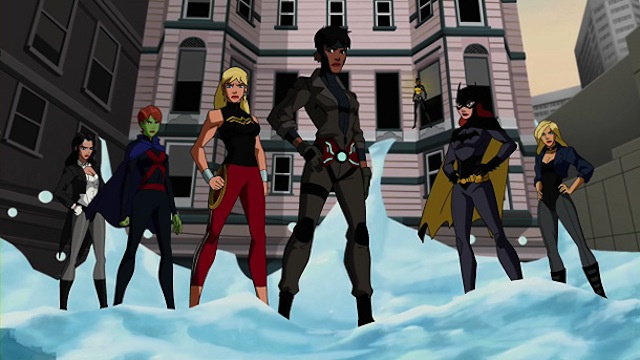Recently Tauriq Moosa left Twitter (he’s back) after receiving hate, threats, and abuse for writing an article about the race problems in Witcher III. If you haven’t played the game, he’s right: that game is white as hell. He has come under fire a lot, and I wanted to share one particular article that I have been asked my opinion on several times: “Love Letter to the Person who Demands Racial Quotas in Witcher 3.”
I want take these author’s points one by one, because I think they are very common points used again and again to argue against diversity in games.
- Not all white people are the same
The author in this article talks about Poland’s dark history of killing, punishment, and erasure. He equates this to what people of color have experienced in America. His implicit argument here seems to be that because people in Poland have been shitty to each other, because there have been periods where people because of language and culture were under fire, that the game is racially diverse. People have always been shitty to each other in history; people have always been subjected to different treatment because of various socio-cultural-economic conditions. That is not unique to Poland, nor is it not present in America that has a lot of racial diversity and racism. Moosa’s point wasn’t that all white people are the same, or that all people in Poland are the same because they’re white. Video games have always had a problem portraying complex characteristics of people because it’s such a visual medium, and when you intervene with too much text you become heavy handed. Moosa never said all white people are the same, but he did critique the fact that in the game there is only one kind of visual representation. This isn’t to say all white people are the same, but rather there is only one shade of skin in the game and this is a problem. It’s been a problem with games for a long time. Witcher III doesn’t exist in a vacuum where it’s design choices, storylines, and characters come tabula rasa into the world. This game exists as part of a culture that systematically excluded people of color. Therefore, makers of an all-white game will of course have some explaining to do.
- People of color can be racist against white people
No, not really. White people can experience a comment or person who hates them because of their race, but that’s not really racism, at least the kind of racism that led Moosa to write his original article. Racism is a systemic, institutional widespread subjugation of a race. As Zandria Robinson, former professor from the University of Memphis and African American woman responds when asked if she can be racist against white people, “Easy. Absolutely not. First, it’s not possible. Last time I checked, I had no systemic power to subjugate white folks or anyone else. I can’t even subjugate my pre-teen, and I totally birth her myself out of my own vaginal cavity area. I can’t even subjugate my toddler and he still shamelessly poops on himself.” Racism is about more than saying or doing something because of a person’s skin color. I once wasn’t given the option of using chopsticks at a Chinese restaurant because the server assumed I would need a fork, when all the Asian people around me got chopsticks. Was that racist? Was I subjugated? No. Asian people assuming white people can’t use chopsticks is not the problem that has led this country to the South Carolina church shootings, that has led people of color to be enslaved in Portugal, Britain, Spain, France, and so many other countries, or that has led to anyone with a shade of color being considered a threat by law enforcement. It is not reminiscent of the time all my people were killed; it doesn’t evoke strong, traumatic emotion in me—because nothing has happened to me in my life on this scale because of my race or racial power status in my country.
- Witcher is based on Polish mythology and set in Poland, so it’s ok that everyone is white.
Witcher is a fantasy game series with zombie-like creatures, magical beasts, and vampires. It’s a fantasy game. With fantastical creatures. And a fantastical storyline. Are you really telling me that in a setting that allows for Insectoids and Elementa that you can’t squeeze in a person of color or two? That’s a pretty weak excuse. Sure, the game is based off Polish mythology, but almost all games are based off of one mythology or another. If you choose to deviate from that mythology in some ways and not others, I think it’s pretty reasonable that you should answer for those deviations. CD Projekt Red deviated from a Polish landscape to include zombies, but not people of color. Given the systematic, institutional problems games have had and continue to have with representing race in games, pointing out the lack of racial diversity in Witcher is pretty god damn on point.
The response to Moosa states that he is pushing some kind of “quota” that should be filled by all games when it comes to race. This suggests that there is a formula: a game with 5 main characters should have 1 person of color, 1 woman, and so on. There is not a formula; there is no magic number. But we want better, more diverse characters. Witcher III kind of sucks. It’s monotonous and boring. Perhaps all the same type of character has caused this feeling of monotony; perhaps all white characters are a sign of a development team being lazy and not putting innovative characters or plotlines or anything into their games. We’ve played Witcher III 1,000 times before. Look instead to a game like State of Decay. They have a hugely diverse cast, included actual people of color and women in the making of the game, and it’s a fucking awesome game.




